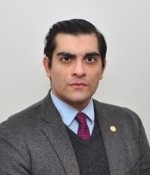The Interplay of Vigilance, Resilience, and
Resistance in Project Management
FEATURED PAPER
By Prof. Dr. M. F. HARAKE
MESOS Business School (France)
GBSB Global Business School (Malta)
CEREGE Research Laboratory,University of Poitiers (France)
Abstract
In an era marked by volatility, uncertainty, complexity, and ambiguity (VUCA), traditional project management paradigms centered on scope, time, and cost are increasingly insufficient. This paper reframes project management through a human-centric lens, introducing vigilance, resilience, and resistance as critical, interdependent dynamics essential to project success. Rather than treating these forces as soft skills or disruptions, the study positions them as strategic capabilities that shape project outcomes, leadership practices, and organizational adaptability. Vigilance ensures early detection of anomalies and risk; resilience supports sustained performance amid disruption; and resistance reveals misalignments and prompts innovation through constructive feedback. Drawing from organizational theory, systems thinking, and real-world case studies, the paper explores how these elements can be embedded into project methodologies, governance frameworks, and team cultures. It highlights the limitations of rigid, linear models and advocates for agile, hybrid, and iterative approaches that better accommodate dynamic project environments. The research emphasizes the importance of leadership behaviors and organizational cultures that promote psychological safety, ethical listening, and continuous learning. Ultimately, this study calls for a shift in how project excellence is defined—moving from efficiency and control to adaptability, inclusivity, and strategic alignment. By recognizing vigilance, resilience, and resistance not as peripheral concerns but as core operational drivers, organizations can better navigate complexity, foster innovation, and deliver long-term value in unpredictable contexts. This integrative framework invites both scholars and practitioners to rethink project management as a discipline rooted in human insight and organizational intelligence.
Key Words: Vigilance, Resilience, Resistance, Project Management, Strategic Alignment, Adaptive Leadership
- Introduction
1.1 Overview
In today’s dynamic and innovation-driven global economy, project management has evolved into a strategic discipline essential for navigating transformation, fostering innovation, and maintaining organizational competitiveness (Liu & Wang, 2024; Senge, 2006). No longer confined to operational tasks such as scheduling and resource allocation, project management now plays a critical role in guiding complex organizational change initiatives. As defined by the Project Management Institute (PMI), it constitutes the ‘’[…] application of knowledge, skills, tools, and techniques to project activities to meet project requirements’’ (PMI, 2021). However, the demands placed on project managers have grown considerably, paralleling the increasing volatility, uncertainty, complexity, and ambiguity (VUCA) of the environments in which projects are executed (Highsmith, 2009; Edmondson, 2019).
Traditional frameworks have prioritized the so-called ‘’iron triangle’’ – scope, time, and cost – later expanded to include quality as a fourth dimension. While these metrics remain foundational, they fail to capture the qualitative, human-centric aspects that frequently determine project success or failure (Kotter, 1996; Coutu, 2002). Project outcomes are increasingly influenced by intangible factors such as emotional intelligence, adaptive leadership, and the ability to foster team cohesion under pressure (Goleman, 1998).
Contemporary projects are seldom linear or predictable. They are shaped by shifting stakeholder expectations, emergent risks, socio-political disruptions, and resistance stemming from organizational culture and cognitive overload (Vaughan, 1996; Rock, 2009). Within this context, three interrelated competencies – vigilance, resilience, and resistance – have emerged as essential strategic capabilities. Far from being peripheral, these elements are operational dynamics that govern a project’s ability to adapt, evolve, and generate enduring value under uncertain and turbulent conditions (Kutsch & Hall, 2010).
More…
To read entire paper, click here
How to cite this work: Harake, M. F. (2025). Managing the Unseen: The Interplay of Vigilance, Resilience, and Resistance in Project Management, PM World Journal, Vol. XIV, Issue VI, June. Available online at https://pmworldlibrary.net/wp-content/uploads/2025/06/pmwj153-Jun2025-Harake-Managing-the-Unseen.pdf
About the Author

Prof. Dr. M. F. HARAKE
Poitiers, France
![]()
Prof. Dr. M. F. HARAKE is a management professor based in France. He currently serves as the Assistant General Manager and Dean of Academic Affairs at MESOS Business School (France). In addition, he is the Manager of the Research Center at GBSB Global Business School (Malta). He is also affiliated as an Associate Research Fellow at the CEREGE Research Laboratory, University of Poitiers (France). Prof. Harake’s research interests include Post-Conflict Public Management, Crisis and Urgent Operations Management, Humanitarian Logistics, and Project Management in Unstable Environments. His academic and professional contributions focus on bridging strategic theory with high-impact practical execution, especially in volatile and complex contexts.
He can be contacted at mfharake@mesos-bs.com
To view other works by Prof. Harake, visit his author showcase in the PM World Library at https://pmworldlibrary.net/authors/mohamad-fadl-harake/









